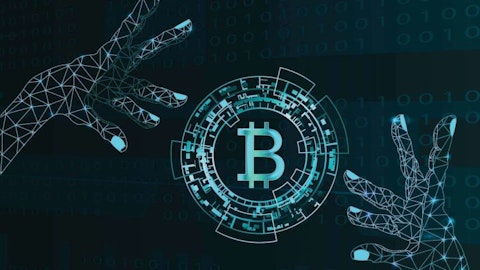A new bill in the US has drawn the crypto community’s ire as it grants the president special powers over the use of digital assets. The legislation allows the US president to interfere with cryptocurrency transactions between US citizens and any foreign entity suspected of links to terrorism.
New Crypto Use Bill Grants Powers to Treasury Secretary
The law has unprecedented ramifications on the crypto industry, interrupting the free use of digital assets if the Secretary of the Treasury considers a transaction suspicious. This means that individual users, as well as crypto service providers, must accept interference from government authorities. Acording to Bitcoin Casinos LTD, other uses of crypto, such as online gambling platforms available to the public may not be left out.
According to the law, the Secretary of the Treasury must identify and report all crypto transactions connected with terrorist groups facilitated by foreign banks or crypto transaction facilitators. The identification must be done periodically and sent to the president, who can decide to ban or enforce strict conditions on these entities and their activities in the US. In addition, the president is free to suspend any digital asset transactions these banks or facilitators may have with American entities.

Pixabay/Public Domain
The new bill also provides a broad definition of “digital assets” and accounts for any innovation that can serve a similar purpose and function as cryptocurrency. According to the law, a digital asset is “any digital representation of value recorded on a cryptographically secured distributed ledger or any similar technology, or another implementation which was designed and built as part of a system to leverage or replace blockchain or distributed ledger technology or their derivatives.”
The law also allows for courts to review classified information where necessary. The Secretary of the Treasury can present the court with classified information ex parte, for a judge to view and decide without public disclosure. If there is a need to waive sanctions in situations that align with national interest, the Secretary will inform Congress and provide a statement with an explanation.
US Government Accused of Trying to Unfairly Control Digital Assets with New Bill
Scott Johnsson, a GP at investment firm Van Buren Capital, has condemned the new bill. In an X post, Johnsson expressed concerns that the government wants to gain undue control of the country’s crypto sector.
“It’s hard to see how this isn’t intended to be a user-level ban power by the President on any protocol/smart contract that’s deemed by the Treasury Secretary to be ‘controlled, operated or [made] available’ by a foreign sanctions violator,” Johnsson wrote.
The Van Buren executive is also worried that the plan is to “corral users to KYC/permissioned chains.” This could have significant effects on the crypto sector as users may be forced away from truly democratized and permissionless networks. Essentially, users may no longer enjoy the privacy desired for private transactions like cross-border payments or bets placed on crypto gambling platforms.
The issue of cryptocurrency legislation in the US has lingered for a while, as enthusiasts have repeatedly criticized the government’s seemingly lackadaisical stance on crypto, especially compared to efforts at legislation in other countries. Interestingly, the US’s crypto sector recorded a win when the House of Representatives approved a bill to establish clear regulations and guidelines for the country’s crypto industry. The Financial Innovation and Technology for the 21st Century Act (FIT21) recorded a 279-136 vote, pushing the bill to the Senate.





